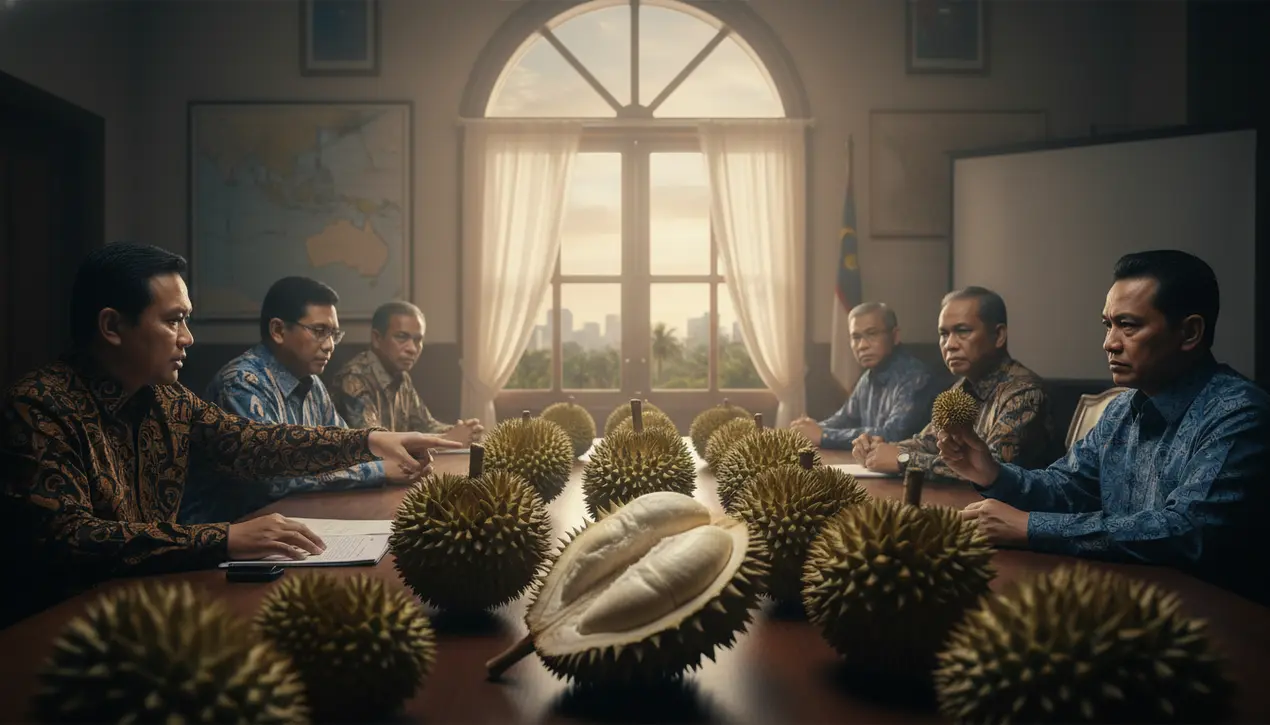
PoliticsdiplomacyBilateral Relations
Indonesia opposes Malaysia's bid to make durian its national fruit.
ME
Megan Hill
3 hours ago7 min read1 comments
In what might be the most delightfully prickly diplomatic scuffle of the year, Indonesia has officially thrown a spiky wrench into Malaysia’s plans to crown the durian as its national fruit, proving that when it comes to the 'King of Fruits,' national pride runs as deep and complex as the fruit’s infamous custard. The controversy erupted this week when Indonesia’s Coordinating Minister for Food Affairs, Zulkifli Hasan, or Zulhas as he’s popularly known, publicly voiced his disagreement, not with a polite demur but with a full-throated claim rooted in agricultural supremacy.He pointed to Indonesia’s staggering production of nearly two million tonnes of durian annually, a figure that dramatically overshadows Malaysia’s output, framing the bid not as a friendly neighborly gesture but as an appropriation of a heritage Indonesia feels is rightfully its own. This isn't just about fruit; it's a culinary identity crisis playing out on the international stage, a juicy drama filled with regional rivalry, historical claims, and the potent symbolism of a fruit that can clear a room or bring people together with its potent aroma.Imagine the scene: food diplomats, instead of arguing over trade tariffs or maritime boundaries, are now locked in a passionate debate over which nation can truly claim the soul of a spiky, pungent orb. For the uninitiated, the durian is more than a food item in Southeast Asia; it’s a cultural touchstone, a social event, a subject of poetry and song, and a point of intense local pride.The Malaysian bid was likely intended to cement this cultural connection officially, to brand the nation with the durian’s unique, unapologetic character. But Indonesia’s swift and firm opposition reveals the deep-seated tensions that often lie beneath the surface of ASEAN camaraderie, where shared histories and cultures can sometimes lead to competing claims rather than unity.This is the gastronomic equivalent of two siblings fighting over a beloved family heirloom, each possessing vivid memories and a sense of ownership that transcends mere possession. The Indonesian stance, backed by hard production data, is a powerful move, shifting the argument from sentimental attachment to economic and agricultural fact.It’s a reminder that in the modern world, sovereignty can be asserted not just over land and sea, but over the very flavors that define a nation’s palate. What happens next? Will Malaysia push forward, risking a minor but symbolic rift with its neighbor? Or will this evolve into a collaborative effort, perhaps a joint recognition of the durian as a shared regional treasure? The outcome could set a precedent for how nations navigate the increasingly crowded and contentious space of culinary copyright. For now, durian lovers everywhere are watching, fork in hand, as this delicious diplomatic standoff proves that when it comes to national pride, the stakes can be as high as the durian’s smell is strong.
#diplomacy
#bilateral relations
#Indonesia
#Malaysia
#durian
#national fruit
#agriculture
#featured
Stay Informed. Act Smarter.
Get weekly highlights, major headlines, and expert insights — then put your knowledge to work in our live prediction markets.
Related News
Comments
Loading comments...
© 2025 Outpoll Service LTD. All rights reserved.